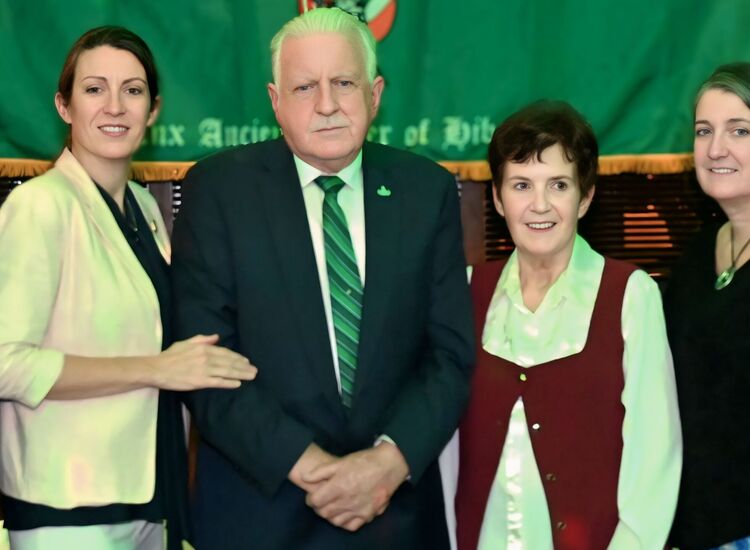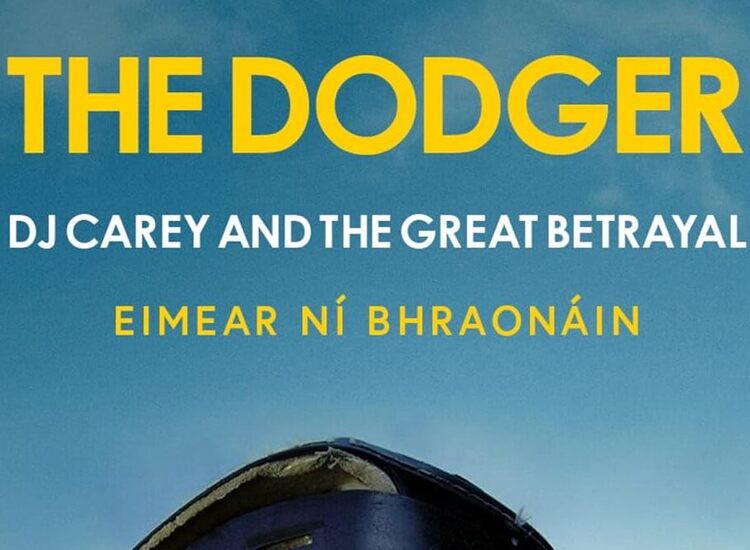The border is a century old but an increasing number of people say that it is time for it to be scrapped
By Peter Kissel and Marty Glennon
The time to set a firm date for a referendum on Irish unity is now. The legal requirement for a border poll as envisioned in the 1998 Good Friday (Belfast) Agreement needs to be embraced and facilitated by the Irish and British governments.
The GFA provides that a poll on Northern Ireland’s status within the UK shall be held “if at any time it appears likely...that a majority of those voting would express a wish that Northern Ireland should cease to be part of the United Kingdom and form part of a united Ireland.”
The GFA was endorsed by five political parties in the north of Ireland and is an international treaty between the governments of the United Kingdom and Ireland. Ninety-one percent (91%) of the voters in the Republic of Ireland and seventy-one percent (74%) of those in the North approved the GFA in a referendum held in May 1998.
This year marks the 100th year that Ireland has been forcefully partitioned. Almost a quarter of that time – twenty-three years – has passed since the GFA was overwhelmingly endorsed by Irish voters north and south. Nevertheless, arguments are still being presented that it is too soon to hold a referendum on Irish unity.
Various excuses are put forth for continuing the century-old status quo, but they are essentially three-fold: first, that such a referendum will be “divisive” and could stir up violence from unionist communities; second, that there has not been enough thought given to how a referendum should be structured; and third, that it is not clear that a majority of Northern voters would vote yes.
The first two of these are specious; the third is debatable for the time being but is losing validity as an increasing number of opinion polls show growing support for a border poll.
The contention that a unity referendum may be “divisive” or cause unionist violence has been raised increasingly in recent months as the inevitably harsh consequences of the UK’s departure from the European Union have become evident and certain loyalists have used the Northern Ireland Protocol as an excuse to raise the ugly specter of violence. Ironically, the same unionists who wholeheartedly supported Brexit now condemn implementation of the Northern Ireland Protocol.
On March 19, David Campbell, chairman of the Loyalist Communities Council (LCC), an umbrella group for outlawed criminal organizations including the UDA and UVF, was quoted in Reuters as saying “The current leaderships of the loyalist organisations are under extreme pressure from, let’s just say, the young Turks who perhaps see an opportunity to go to war on their terms.”
A war!? With whom?
The threat of violence needs to be addressed and condemned by the international community. When asked recently about the LCC, Alliance Party leader Naomi Long was clear: "They aren't stakeholders to be consulted. They are a malignant force destroying our community.”
In essence, the argument that drug gangs would be upset with a referendum is irrelevant and indefensible.
Deferring to fears of loyalist violence turns democracy on its head. The United States knows from the January 6 riot at the Capitol how dangerous it is for officials and others to stoke the worst elements of society, and to let violence-prone minorities dictate the terms of democracy. It is equally true that the north of Ireland cannot be held captive by those who say they will be offended or resort to violence if they don’t get their way.
Another reason put forth to further delay a unity referendum is that there has not been enough preparation. This argument betrays a circular, never-ending absurdity in search of an elusive goal. For instance, the Final Report of the "Working Group on Unification Referendums on the Island of Ireland" (May 2021), a well-intentioned 272-page tome, sets forth an idealistic panoply of criteria and procedures that make the head spin. Notably, it calls for the UK and Ireland to jointly develop a plan for conducting a referendum.
The arguments for a lengthy preparation time overlook the example of the GFA’s approval. The GFA was signed by the participating parties on April 10, 1998. An information and planning campaign began immediately and the referenda in both parts of Ireland took place six weeks later, on May 22, 1998. The conduct and timing of the votes were universally accepted and hailed.
The Irish and British governments could have been planning for this since the GFA passed over twenty years ago. Certainly, once the the North was dragged out of the European Union against its will by the UK’s self-destructive Brexit vote in 2016, despite 56% of the North voting to stay, it should have been obvious that it was time to begin planning for the possibility of a referendum.
Faced with governmental inaction, the people of Ireland, north and south have set about themselves to begin discussions for a referendum. The non-profit, non-partisan group, Ireland’s Future, has facilitated conversations around the North to hear from people from all communities on how a New Ireland could be formed.
Several political parties and mainstream politicians in the South have been advocating for an initiative to explore the issue for years. Studies have been published on the economic viability of unification and the opportunities that present themselves for all the people of Ireland, whether Irish or British.
Recently, at the Fine Gael Ard Fheis on June 15, former taoiseach Leo Varadkar told his party that it needs to prepare for a border poll: “I believe in the unification of our island and I believe it can happen in my lifetime....We also need to map out how we can take the best of both jurisdictions and apply them across Ireland as a whole – perhaps our welfare and pension systems, their NHS."
Sinn Féin leader Mary Lou McDonald welcomed Varadkar’s statement, saying he was “absolutely right.”
Brexit has opened the door for the UK to unleash a torrent of vicious actions targeting the people of the north of Ireland and the institutions of the Good Friday Agreement and the Stormont House Agreement.
As discussed in the February 17 Irish Echo article (A British Post-Brexit War on Human Rights), the British government is currently targeting the Human Rights Act, the Northern Ireland Human Rights Commission, and legacy investigations for severe downgrading, or outright elimination.
Relatedly, in separate legislation, parliament is considering virtual amnesty for British army murderers and criminal impunity for British security forces for atrocities committed during the Troubles.
At the same time, overt discrimination against Catholics and nationalists in policing and justice has been on the rise again in the wake of Brexit. In August 2018, the PSNI arrested two journalists who exposed the identity of a mass murderer involved in the 1994 Loughinisland Massacre, while refusing to investigate the chief suspect.
On February 5 this year the PSNI broke up a peaceful commemoration by Irish nationalists of the Sean Graham Bookmakers atrocity and falsely arrested nationalist Mark Sykes, days after allowing a large violent loyalist protest to proceed without repercussion in Belfast. Illegal loyalist gatherings have taken place recently in Portadown, on the Shankill, and in other locales, all while the PSNI stood down.
A vote on unification is imperative in order to assure, once and for all, equal justice in the North. With Brexit, the centuries-old British tactic of dehumanizing and marginalizing people living in Ireland is playing out with rhetorical ferocity and policy madness.
This behavior will not end as long as Britain retains power and control in the North. The rights of the people of Northern Ireland (whether Unionist, Nationalist, Non-aligned, Protestant, Catholic, or non-religious) are subjugated to British hegemony, and are mere throwaways in the illogic of Brexit.
The time for dithering is past. Protests that all details have to be worked out in advance and that a vocal minority should continue to have a veto on unity are misplaced.
The denial of a democratic vote of the people is the real threat to the GFA, not the posturing of illegal, criminal loyalist gangs which prey on their own communities. A date for a referendum needs to be set now, and a timetable established for adequate preparation and public discussion to take place beforehand.
Peter Kissel is National President of the Irish American Unity Conference. Marty Glennon is Past President of Brehon Law Society and a Member of James Connolly Irish American Labor Coalition. Both are members of the Ad Hoc Committee for the Protection of the Good Friday Agreement.








